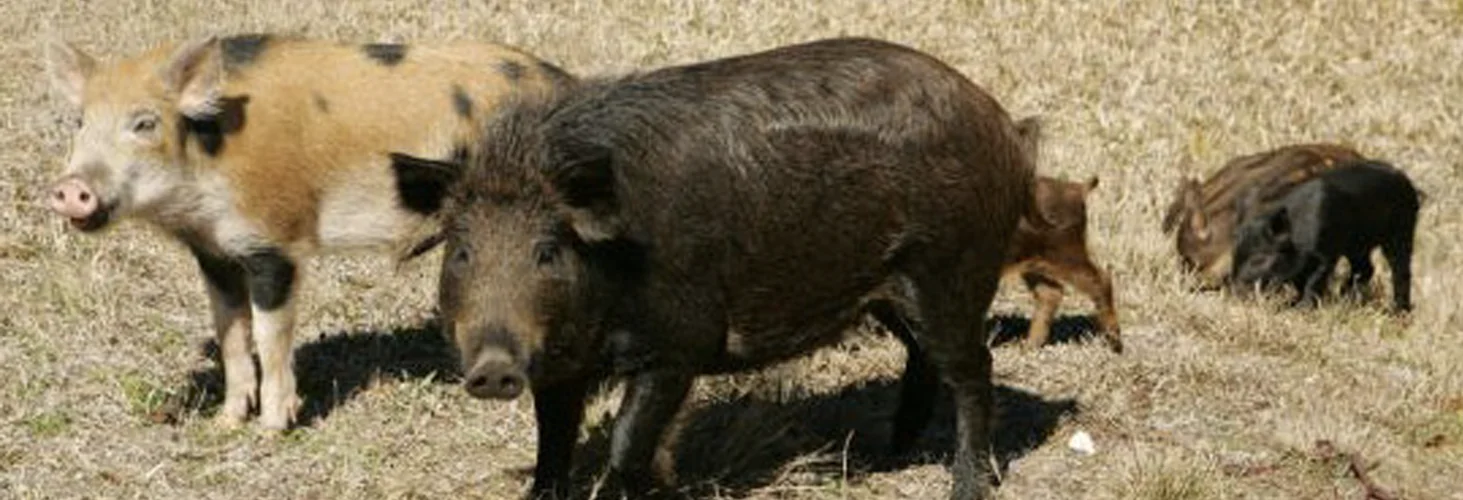By Brandon Moseley
Alabama Political Reporter
Monday, November 28, 2016, the Alabama Department of Conservation and Natural Resources announced that over a dozen persons were indicted for the illegal transport and possession of wild hogs.
Hogs are not a species that are native to North America. The first hogs that were brought to Alabama came with Hernando DeSoto’s expedition and the extremely adaptable omnivores have been escaping domestication into the wilds of Alabama ever since.
Hogs are now living wild in most of Alabama’s 67 counties. There are an estimated 5 million now in the United States. Alabama allows hunting of wild hogs 365 days a year with no limit on the number a hunter can take in a day, but hunting has not been an effective control. Instead of controlling the invasive species, recreational hunters have instead have allegedly been responsible for spreading the animals. The live transport and release of feral swine has been illegal in Alabama since 1997.
On Monday, an investigation by Conservation Officers in the Division of Wildlife and Freshwater Fisheries (WFF) has led to arrest warrants issued for 16 people in seven Alabama counties and two other states for the illegal transport, release or live possession of feral pigs.
Thirteen Alabama residents were arrested in Barbour, Choctaw, Fayette, Marengo, Mobile, Monroe and Sumter counties. In addition, two violators in Florida and one in Mississippi will also be served warrants.
The indictments are the result of a two year investigation by WFF concentrated on feral hog related hunting, trapping and sales activities to determine the extent of the transport or release of feral swine in Alabama. Their finding is that there is an accepted culture among some hog hunters where laws governing possession or transport of live feral hogs were ignored.
Chief Enforcement Officer Kevin Dodd said, “Contrary to the law, some persons continue to trap pigs for live sale to others, and in some cases carry them across state lines. We documented feral pigs being trussed up and transported in car trunks, dog boxes and back seats of vehicles for release elsewhere.”
Dodd said, “In some cases, pigs were purposefully mutilated by cutting off their ears or breaking out their teeth. This mutilation was done during the training and conditioning of hunting dogs. While the Alabama Department of Conservation and Natural Resources strongly supports lawful and humane hunting, it does not condone any activity that involves the live possession of feral hogs for the purpose of training dogs.”
Dodd said, “We are not seeing a large, organized effort with this violation. It seems to be pockets of individuals seeking to benefit.”
It is estimated that wild hogs cause more than $1.5 billion in damages in the United States. $800 million of that is damage to agriculture and much of that is in Alabama. Modern mechanized farming methods means that fewer farmers farm more acres farther from home thus effectively patrolling larger fields to protect them from the swine is tremendously difficult for farm families. Where fields are fenced, fencing is often inadequate to keep the wild hogs out of fields.
Hogs can damage almost any commercial crop by foraging, feeding, chewing, rooting and trampling it. This animal does not spare trees, either. Hogs will disturb newly planted seedlings and damage larger trees by chewing roots or girdling them by continuously rubbing the bark.
Once introduced into an environment the number of hogs can rapidly increase due to high litter sizes. In 2015 the state of Alabama made catching, transporting and releasing hogs a class C to a class B misdemeanor, which carries a mandatory fine of $2,500 and possible jail time of up to 180 days.
The Alabama Political Reporter observed 4 wild hogs grazing in the Eufaula National Wildlife Refuge in open daylight last year.
The traps and fences farmers have to put up to protect crops from the animals can cost a farmer thousands of dollars.
While wild hogs do damage to crops, they also raid residential areas and destroy landscaping, prey on small livestock, compete with wild animals for resources, and contaminate water resources.
Dodd warned that WFF will continue to investigate and charge anyone who disregards the law relating to transport, release or live possession of feral swine. Dodd said, “This is a prime example where one individual’s simple violation can negatively affect numerous others. We will continue to do everything possible to eliminate this illegal activity.”





















































